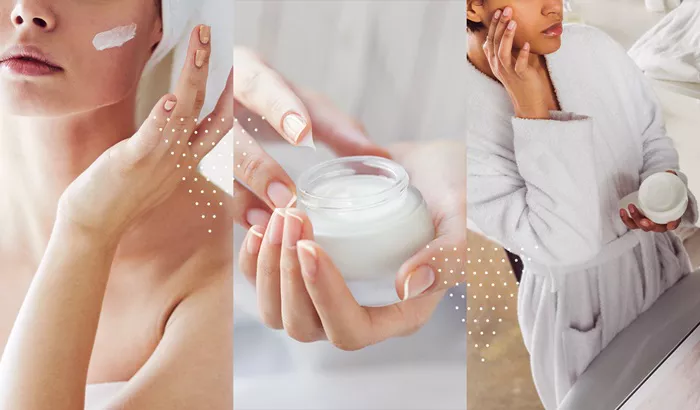Achieving moisturized skin is a fundamental aspect of skincare that contributes to overall skin health and appearance. Moisturization is essential for all skin types, regardless of age or environmental factors. Proper hydration helps maintain the skin’s barrier function, prevents dryness, and supports a youthful complexion. In this article, we will explore the importance of moisturized skin, the benefits of using moisturizers, and effective strategies to achieve and maintain hydrated skin.
Understanding Skin Hydration
Skin hydration refers to the water content present in the skin. It plays a crucial role in maintaining skin elasticity, softness, and overall health. When the skin is adequately hydrated, it appears plump and radiant. Conversely, dehydrated skin can lead to various issues such as flakiness, irritation, and premature aging.
The Role of the Skin Barrier
The skin barrier is the outermost layer of the skin that protects against environmental aggressors and prevents moisture loss. A healthy barrier is essential for retaining hydration. Factors such as harsh weather conditions, pollution, and certain skincare products can compromise this barrier, leading to increased transepidermal water loss (TEWL). This emphasizes the importance of using moisturizers that not only hydrate but also strengthen the skin barrier.
Benefits of Moisturizing
1. Hydration and Nourishment
Moisturizers are designed to hydrate and nourish the skin effectively. They replenish lost moisture and help maintain a balanced hydration level throughout the day. Regular use of moisturizers can prevent dryness, dullness, and rough texture by providing essential nutrients that support skin health.
2. Protection Against Environmental Damage
Moisturizers create a protective layer on the skin’s surface that shields it from environmental stressors such as UV rays, pollution, and harsh weather conditions. This protection is vital in preventing damage that can lead to premature aging and other skin concerns.
3. Slowing Signs of Aging
Well-moisturized skin appears more youthful and vibrant. Hydration helps reduce the appearance of fine lines and wrinkles by plumping up the skin. Additionally, moisturizers can improve skin texture and elasticity, contributing to a smoother complexion.
4. Enhancing Skin Texture
Moisturizers help fill in small fissures in the skin’s surface, resulting in a smoother texture. This effect is particularly beneficial for individuals with rough or uneven skin.
5. Preventing Skin Issues
Regular moisturizing can help prevent various skin issues such as eczema, acne, and sensitivity. By keeping the skin hydrated, moisturizers can reduce irritation and promote overall skin health.
Choosing the Right Moisturizer
Selecting an appropriate moisturizer is crucial for achieving hydrated skin. Here are some key factors to consider:
Skin Type
Dry Skin: Look for rich creams or ointments containing occlusive ingredients like petrolatum or shea butter.
Oily Skin: Opt for lightweight gel-based moisturizers that provide hydration without clogging pores.
Combination Skin: Use a balanced moisturizer that hydrates without being too heavy on oily areas.
Sensitive Skin: Choose fragrance-free products with soothing ingredients like aloe vera or chamomile.
Ingredients to Look For
Hyaluronic Acid: A powerful humectant that attracts moisture to the skin.
Glycerin: Another effective humectant that helps retain moisture.
Ceramides: These lipids strengthen the skin barrier and lock in hydration.
Antioxidants: Ingredients like vitamin C and E protect against environmental damage.
Daily Skincare Routine for Moisturized Skin
A consistent skincare routine is essential for maintaining hydrated skin. Here’s a step-by-step guide:
1. Cleansing
Start with a gentle cleanser suited for your skin type. Avoid harsh soaps that strip away natural oils.
2. Toning
Use an alcohol-free toner to prepare your skin for better absorption of subsequent products.
3. Serum Application
Incorporate a hydrating serum containing hyaluronic acid or glycerin before applying moisturizer.
4. Moisturizing
Apply your chosen moisturizer while your skin is still damp to lock in moisture effectively.
5. Sunscreen
In the morning routine, always finish with a broad-spectrum sunscreen to protect against UV damage.
Additional Tips for Maintaining Moisturized Skin
Stay Hydrated
Drinking adequate water throughout the day supports overall hydration levels in your body and reflects on your skin.
Humidifiers
Using a humidifier at home can add moisture to dry indoor air, especially during winter months when heating systems can dehydrate your skin.
Avoid Hot Showers
Hot water can strip natural oils from your skin; opt for lukewarm water instead during showers.
Exfoliation
Regular exfoliation helps remove dead skin cells that can hinder moisture absorption but avoid over-exfoliating as it may irritate the skin.
Conclusion
Achieving moisturized skin requires a combination of proper product selection, consistent skincare routines, and healthy lifestyle choices. By understanding your unique skincare needs and implementing effective strategies, you can enjoy soft, supple, and radiant skin year-round. Remember that every individual’s skincare journey is different; therefore, it may take time to find what works best for you.
Incorporating these principles into your daily life will not only enhance your complexion but also contribute significantly to your overall confidence and well-being.
Related topic:
How Do You Take Care Of Your Skin After Microneedling?
How To Get Clear Skin All Over Body?

